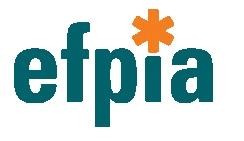WELCOME TO ENABLE
The ENABLE project was launched in February 2014 and ended in October 2021 within IMI's 'New Drugs for Bad Bugs' (ND4BB) programme.
The ENABLE consortium worked to advance the development of promising new antibiotic compounds targeting Gram-negative bacteria such as Escherichia coli. The goal of the project was to develop attractive antimicrobial candidates for extensive preclinical studies and First-in-Human clinical trials, bringing new antibiotics to treat Gram-negative infections one step closer to patients.
ENABLE managed a drug discovery and development engine for testing and optimising compounds in all preclinical phases of antibiotic development. ENABLE was an initiative targeted at SMEs and research institutes.
Goals of ENABLE:
• three antibacterial Leads
• two antibacterial Development Candidates
• at least one compound into preclinical and Phase 1 clinical studies
How did ENABLE work?
ENABLE was not only a source of funding to advance promising compounds, but it was also:
- an expert knowledge hub
The Portfolio Management Committee (PMC) of ENABLE was composed of 15 experts from leading EFPIA companies, universities and independent consultants from all over the globe. With their long and extensive expertise in drug discovery, clinical development and anti-bacterials they mentored scientific discovery programmes and advised on challenges as well as on how to mitigate these.
-
an alliance and collaboration to advance one common goal: fighting AMR
Selected ENABLE participants benefitted from a well-developed drug discovery and development platform that helped advance scientific discovery programmes in a very efficient manner. ENABLE Consortium was made up of experts and staff in many fields including microbiology, chemistry, ADME, in vivo studies and safety who were providing support to bring compounds forward.
-
supporting “raw diamonds”
If a scientific discovery programme was not yet meeting thresholds with regards to compound maturity or generated data package, ENABLE was offering a Material Transfer Agreement (MTA) Route – a kind of pre-ENABLE funding. If accepted, this was also 100% funded by ENABLE.
-
non-dilutive
Programme owners retained full ownership of their asset and all value added through the work of ENABLE. A value sharing agreement was created within the consortium, where a small percentage of future income generated from the resulting anti-bacterial by the programme owner would be shared between partners.
